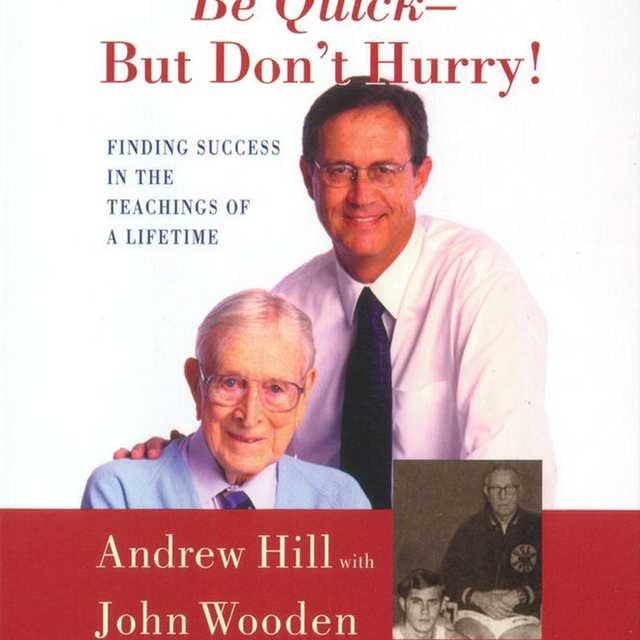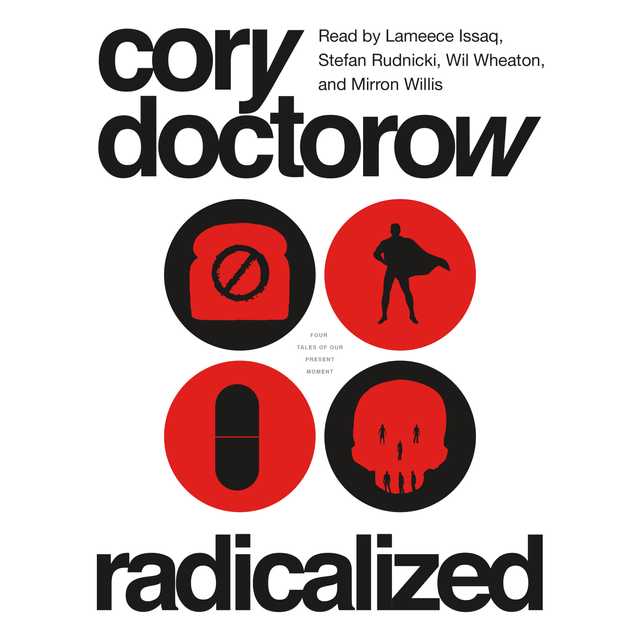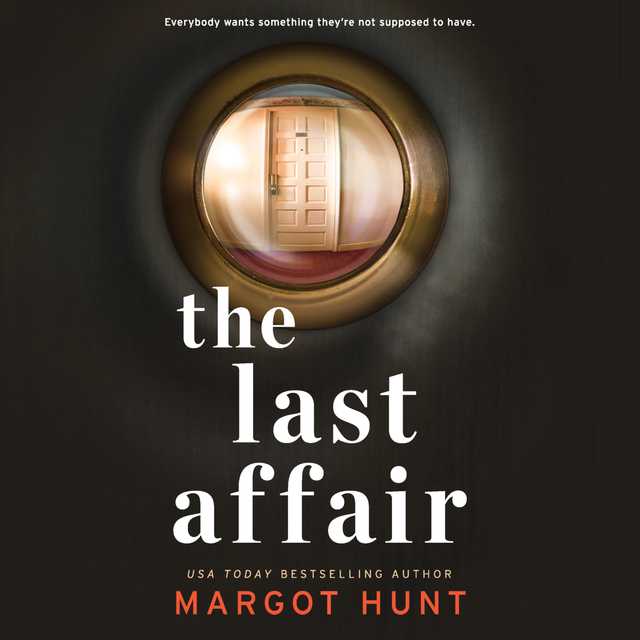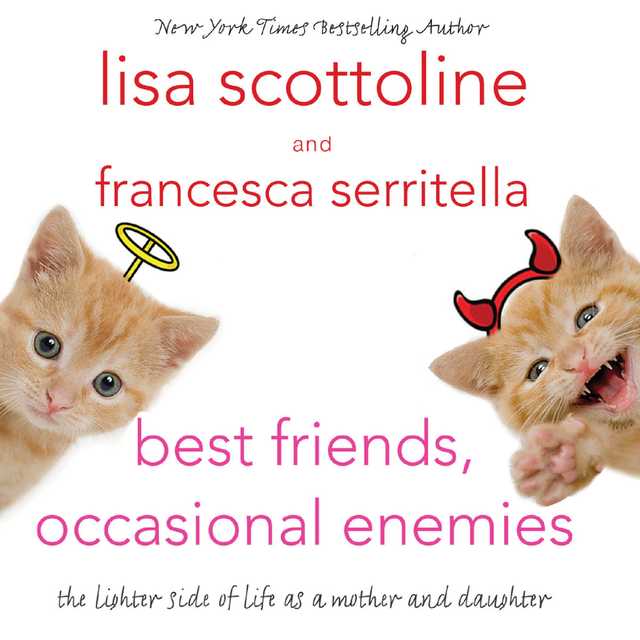Recommended by 1 experts
Genome Audiobook Summary
“Ridley leaps from chromosome to chromosome in a handy summation of our ever increasing understanding of the roles that genes play in disease, behavior, sexual differences, and even intelligence. . . . . He addresses not only the ethical quandaries faced by contemporary scientists but the reductionist danger in equating inheritability with inevitability.” — The New Yorker
The genome’s been mapped. But what does it mean? Matt Ridley’s Genome is the book that explains it all: what it is, how it works, and what it portends for the future
Arguably the most significant scientific discovery of the new century, the mapping of the twenty-three pairs of chromosomes that make up the human genome raises almost as many questions as it answers. Questions that will profoundly impact the way we think about disease, about longevity, and about free will. Questions that will affect the rest of your life.
Genome offers extraordinary insight into the ramifications of this incredible breakthrough. By picking one newly discovered gene from each pair of chromosomes and telling its story, Matt Ridley recounts the history of our species and its ancestors from the dawn of life to the brink of future medicine. From Huntington’s disease to cancer, from the applications of gene therapy to the horrors of eugenics, Ridley probes the scientific, philosophical, and moral issues arising as a result of the mapping of the genome. It will help you understand what this scientific milestone means for you, for your children, and for humankind.
Other Top Audiobooks
Genome Audiobook Narrator
Simon Prebble is the narrator of Genome audiobook that was written by Matt Ridley
Simon Prebble has worked extensively on British and American television as both actor and narrator.
About the Author(s) of Genome
Matt Ridley is the author of Genome
More From the Same
- Author : Matt Ridley
- The Red Queen
- How Innovation Works
- The Evolution of Everything
- The Rational Optimist
- Viral
- Publisher : HarperAudio
- Abraham
- American Gods [TV Tie-In]
- Dead Ringer
- House of Sand and Fog
- Prey
Genome Full Details
| Narrator | Simon Prebble |
| Length | 12 hours 20 minutes |
| Author | Matt Ridley |
| Category | |
| Publisher | HarperAudio |
| Release date | January 18, 2011 |
| ISBN | 9780062073105 |
Subjects
The publisher of the Genome is HarperAudio. includes the following subjects: The BISAC Subject Code is Evolution, Life Sciences, Science
Additional info
The publisher of the Genome is HarperAudio. The imprint is HarperAudio. It is supplied by HarperAudio. The ISBN-13 is 9780062073105.
Global Availability
This book is only available in the United States.
Genome is recommended by
Mark Zuckerberg
Mark Zuckerberg is a business magnate & philanthropist.
Aims to tell a history of humanity from the perspective of genetics rather than sociology.
Goodreads Reviews
David
October 15, 2018
I wish I had read this book 19 years ago, when it was first published. Now, it is out of date. In fact, the Bibliography and Notes section mentions that the book was already out of date, as new knowledge is growing at a very fast rate. Nevertheless, the book is fascinating, even if modern genetic technologies are not even mentioned--as they were not yet invented at the time of publication!We often read that 98% of our genetic letters are in common with chimpanzees, and 97% with gorillas. But, I was amazed to read that humans share exactly the same number and types of bones with chimpanzees, the same chemicals in our brains. We have the same types of immune, digestive, vascular, lymph, and nervous systems. So, it must be the remaining 2% of our gene structures that differentiate humans from chimpanzees.All sorts of nature-vs.-nurture issues are addressed in this book. The book contains a remarkable table of IQ correlations. For identical twins reared together, the correlation is 86%. For twins reared apart, 76%. For biological siblings, 47%. For adopted children living together, the correlation is 0%. These statistics say a lot about the relative importance of nature vs. nurture. And, remarkably, as one ages from childhood to adolescence to adulthood, the importance of heritability of IQ increases!Evolution by natural selection is about the "competition between genes, using individual and occasionally societies as their temporary vehicles.... The body's survival is secondary to the goal of getting another generation started." Genes act as if they have selfish goals, an idea first proposed and made popular by Richard Dawkins in his famous book, The Selfish Gene.I learned from this book that men and women are most attracted to body odors of people of the opposite sex who are most different from them genetically, in terms of MHC genes that govern resistance to parasite intruders, by the immune system. Also, I learned how genes can be expressed due to the release of cortisol and other hormones during periods of stress. For example, people living near the Three Mile Island nuclear plant at the time of the accident had more cancers than expected. But, these cancers were not due to radiation exposure, as there was none, but due to heightened cortisol levels, which which reduced the effectiveness of the immune system.Genes need to be switched on in order to work. External events and free-willed behavior can switch on genes. Genes are not omnipotent; they are at the mercy of our behavior. Another remarkable fact is that the status of a person's job is a better predictor of the likelihood of a heart attack, than obesity or high blood pressure. Someone in a low-grade job is four times more likely to have a heart attack than a high-grade job. The reason is that low-grade jobs lead to the lack of control over one's fate, leading to an increase in stress hormones, followed by a rise in blood pressure and heart rate. This may explain why unemployment and welfare dependency help to make people ill. It is not understood why we and all animals have evolved in such a way that stress suppresses our immune systems.The most important lesson from the book is repeated over and over again, "Genes are not there to cause diseases." Gene mutations can lead to disease, and sometimes there is a balancing effect between resistance to one disease at the expense of being susceptible to another disease.This is an excellent book, very readable, and quite engaging. The author gets into some technical detail at times, without getting too bogged down in jargon. I recommend this book for anyone interested in genetics. My only reservation about it, is the fact that it is already quite out of date due to the rate of increasing knowledge about genetics.
Joseph
February 14, 2023
Mr. Ridley's, "Genome," was published in 1999. Needless to say, a lot has gone on since that time, and many dedicated scientists and researchers have greatly advanced our understanding of the twenty-three pairs of chromosomes that make up the human genome, and gene editing has seriously taken off. (Mr. Ridley, in my edition, adds an appendage where he discusses some of the new findings).I am hesitant to say that this is a good book to start off with if you are interested in the human genome. I say that because after reading a number of books on the subject, there are parts of the book that I had to go back and reread a number of times to fully understand the point he was trying get across.(But then that could just be because am not the brightest bulb in the chandelier).The analogues he uses to explain the jobs of different genes are wonderful.
Douglas
October 07, 2014
Even though this was written and published over 15 years ago, I found it relevant and revealing. Ridley is one of the better science writers, and this is assuredly his master work. Each chapter highlights a specific gene found on each of the 23 pairs of chromosomes. He repeatedly states that the book is not about disease, but it ultimately becomes a major theme and topic. The final chapters that discuss genetic determinism, eugenics, and nature vs nurture are treated with upmost care, empathy, and altogether brilliant writing. Ridley expresses his views by not expressing his views. How rare is that for a science writer? If he has a bias, it’s hard to tell here. Highly recommended and thoroughly engaging read.
Joel
March 06, 2019
I recently read two other books on the human genome: Siddhartha Mukherjee's The Gene: An Intimate History and Sam Kean's The Violinist's Thumb: And Other Lost Tales of Love, War, and Genius, as Written by Our Genetic Code. I expected there to be a bit of overlap between them, but I actually found them each to be very different. Mukherjee and Kean focus a lot on the history, while Ridley stays more on the science and less about the history. Kean is a great storyteller, while Mukherjee tries hard to make a grand philosophical message, which falls flat, in my opinion, compared to Ridley.As for the science, much of it seemed outdated, this book being almost two decades old, and the field of human genetics so quickly changing. Most of the sources are academic papers or articles, and the popular books and textbooks referenced are mostly outdated. However, based what I learned in Muckerjee's book, most of the science in Ridley still seems valid.I'll admit that the real reason I picked this one up was to read Ridley's political views, and in that, he does not fail. The thrust of Ridley's political philosophy is in complex systems control is not centralized but distributed - a view I fully subscribe to. And this is not only true for biology, but for economics and government too. Ridley makes this very clear and convincing in several places in the book. I'd really like to read his other book - The Evolution of Everything: How New Ideas Emerge, where he expands on this greatly.Ridley delves into other contentious political topics as well, such as media hysteria over Mad Cow Disease, eugenics, genetic screening, sex, evolutionary psychology, and luddism. Ridley has a unique, but extremely compelling views on all these topics, and that's where this book really shines. One of the points Ridley quite clearly makes in a couple of places is that your genes belong to you alone, and you alone have the right to decide who you want to share it with. However, you really have to wait for the last few chapters of the book for his to really get started.Overall, this book is a great addition to the popular literature on genetics. Despite being almost two decades old, the science is still fresh, and the political angle is something you won't get from any other author is such compelling a manner.
Jim
August 27, 2019
Ridley tells a little about each gene in order & focuses on one specific part of each to discuss their workings & significance. He doesn't limit himself to our physical make up, but discusses the historical, sociological, & political. It's a fascinating tour & he leaves as many questions as he answers.Huntington's Disease is well known & mapped. Most of us have less than 36 repeated glutamines in a specific spot on chromosome 4. If you have more, you're more likely to get it & they can even pin down when. It's an awful death & they can test for it. Would you? Should a doctor or anyone else tell you? Ridley discusses that at some length. He comes back to this again with chromosome 21 when dealing with Down Syndrome which is also easily tested for, but he opens the can of eugenic worms. He does a great job reporting the arguments, in which he points out a lot of flaws, & the facts leaving the reader to make up their own mind. Very well done.He also puts a lot of the fears of genetic tinkering to rest by showing just how the data is being used. Often knowing the genetic code, what works (It usually always does.) & what is broken or different allows medicine to alleviate or even fix the problem with more conventional means. He also briefly explains the various methods used for genetically modifying various organisms. This book is 20 years old, so there's been a lot of progress, but it is still relevant since he's dealing with a lot of basics & shows how our expanding knowledge is making life better. I can't remember the exact quote, "Scientists live for ignorance; finding the answers. Knowledge is boring." or something like that & adds that every discovery only creates more questions. It was great because he summed up our technological leaps of the past few centuries so well. Very well narrated & highly recommended in any format.
Ade
August 30, 2011
Sometimes I have to stop after even a paragraph. It's a strong feeling of becoming enraptured by the information, connections and insights afforded by this extremely lucid and stimulating layperson's introduction to the human genome. An extremely compressed three page preface provides a glossary and explanation of key terms, and can be returned to as needed. Each chapter then takes one chromosome and selects from each a particular gene to describe with a much broader emphasis upon what this actually means for human individuality, culture and society.As always when reading popular science books, as well as becoming enthusiastic and wishing to retrain as an astrophysicist or quantum mechanic for instance, I am very interested in the 'rhetoric' of discourses, what emerges between the lines - often very powerful assumptions and values relating to conceptualising 'human nature'. In the case of biology, neuroscience etc. it strikes me as not at all right that one of the assumptions seems to be treating the hard, material attributes of human animalism on the same logical level as the wider discourses of humanity: thus for instance the nature-nurture division (itself making the same logically precarious distinction) leads at worst to quanitfying the relative influence of each 'side'. The are always ideological and political implication, too, not only within the production of science popularisation but within scientific enterprises generally.Ridley does not entirely address the identity question. There's an interesting parallel I think between science writing like this which acknowledges "environmental factors' but leaves them as extremely vague, amorphous and subject to filling with whatever a particular thinker or conceptual paradigm requires, and those who consider such questions as occur around socioeconomics, ideology, material poverty etc. who tend to leave the questions about the enormously important weight of human meat, including brain meat, as a passing aside. Both have their essential role, and a synthesis is required. However, Ridley does an excellent job in contrasting Chapter/Chromosome 4, Fate wherein a particular tiny, tiny genetic abnormality is indeed an unstoppable marker which predicts certain terminal illnesses )or, the high risk of) with Chromosome5, in Environment which details the research for asthma related genes: here, he whizzes through the many implicated genes correlating with different demographies and how environment is a very significant, possibly crucial, factor in triggering genetic propensities (among different groups: men, for instance seem more affected by petrol fumes than women who have a weakness for diesel).I like his conclusion of the chapter on environment (in which he does, by the way, mention the wide open field for interpreters of data to channel explanations through favourite hobby horses, interests or ideology):The more we delve into the genome the less fatalistic it will seem. Grey indeterminancy, variable causality and vague predisposition are hallmarks of the system.....(S)implicity piled upon simplicity creates complexity. The genome is as complicated and indeterminate as ordinary life, because it is ordinary life. This should come as a relief. Simple determinism, whether of the genetic or environmental kind, is a depressing prospect for those with a fondness for free will.Well, being a numbskull, I hadn't realised that gene theory has almost died in relation to the context of this book. I shall keep it as an historical text! Still, its great strength remains which is the approach to emphasising the amorphousness of data and theory, the tentative nature of concluding anything, and so thus an antidote to the dread ideologies of the numbskulls all around who use language like lego blocks and words like things to be quantified, measured and sold and bought. Yah!
Voodoochilli
January 31, 2013
I really enjoyed this book. I would say it is so far the best book I have read this year and a great introduction to genetics. Quite a lot of the stuff in this book has been covered in other books I have read, most notably by Richard Dawkins, however the writing was fresh and I learned a hell of a lot of stuff throughout this book. For example, did you know that the placenta is actually a parasite, the result of male antagonistic genes battling the female's X chromosomes by redirecting more resources to the baby? And in response the female releases insulin in an attempt to counter this intrusion and moderate the resources? I didn't! What about the fact that male sperm has an agenda and that chemicals within enter the female's brain, lowering her sex drive and adjusting the timings of her menstrual cycle in an attempt to stop her mating with others? At the same time, the female's genes have attacked the poor Y chromosome to such an extent that it has all but shut down, being a tiny little stub of a gene. Fascinating!Many issues are explored in this book, from reproduction, disease to Eugenics and the politics of science and academia. There is also quite a bit of history, and not just the usual mention of Darwin on the Galapagos islands with his finches. There were many occasions in this book when I stopped to read a paragraph out to my wife who was also fascinated.My only minor criticism of this book would be that the final chapter seems slightly rushed. Additionally, I don't like it when authors start name dropping a lot of people (particularly the self declared intellectuals we call philosophers). I find name dropping is often used as a diversion from fact, and I feel the last chapter lacked some of the magic of the 22 chapters before it. I feel the author did this in an attempt to cover too many topics and round the book with a nice conclusion, one that wasn't needed. You see, each chapter tells the story of a chromosome! The book is accessible but does get progressively more difficult and there is quite a bit of genetic code mentioned, but most people will not have a problem understanding it since the book does educate so well.Written at the turn of the century, the book is 10 years old and with the exception of the first human genome being transcribed, to a lay person like me it doesn't seem dated at all. I have since ordered more books on the subject and I am once again interested in evolutionary biology! I am now reading The prehistory of the mind : a search for the origins of art, religion, and science By Steven Mithen.The book just missed 5 stars for me as I feel the final chapter didn't quite gel with the rest, however this book is on par with any book by Richard Dawkins, Bill Bryson, Marcus Chown, Richard Feynman or any other well known popular science writer you can name. If you are interested in science, biology or evolution just a little bit then read this, you won't be disappointed.
Betsy
December 14, 2019
[30 September 2019]I really enjoyed this book, and appreciated it, because it explained basic genetics better than anything else I've ever read. Of course I haven't read Siddhartha Mukherjee's book, but I still suspect this book is better for the genetic novice. Of course, it's 20 years old, but most of what it covers is probably still true. Some readers might object to how much he injects his personal opinions into the text, but I liked it. And I felt it was usually clear that it was his personal opinion. Another thing a little odd was the number of off topic digressions, often coupled with personal observations. But I mostly liked those too. The last chapter got a bit into the weeds, discussing the apparent controversy over "free will". He disagrees with the common positions that there is no free will because your actions are either dictated entirely by your genome or your actions are entirely random. Ridley does not accept that dichotomy, saying that neither of those control absolutely and free will resides in the interaction between those two extremes. That makes a lot of sense to me.I do wish there was a way to get an updated and annotated edition. One specific item he mentions is a study that found heart disease is not a function of diet or exercise as much as it is of stress, and particularly the stress related to your status or lack there of. I'd never heard of that. The medical community certainly is still concentrating on diet and exercise. So I wonder if that study is still considered valid. The book is short and easy to read. The writing style is relaxed and doesn't get too bogged down in scientific detail for the lay reader. I wholeheartedly recommend it.
James
July 09, 2017
This is a really great book - my only qualm is that it might be outdated now, as gene technology and science is moving so quickly forwards. Basically, if you want to know why you are here, what you are and what you´re made of, this book has some pretty convincing answers. Fate, destiny, love, life, death, character, intelligence and illness are all covered and it´s worth pressing on through the quite tough prose to get a better, illuminating, scary but finally comforting picture of the vehicle you´re in for this trip through life. Here´s the thing: even though you´ve got your hands on the wheel, you´re not the driver.
David
January 28, 2021
Matt Ridley is able to break down extremely difficult concepts into terms the average reader can understand. This book was fascinating as it took every human genome and added real life in clear, lucid examples. This is a remarkable work and it will make anyone who reads it smarter. It is also highly entertaining, not an easy feat.
Frequently asked questions
Listening to audiobooks not only easy, it is also very convenient. You can listen to audiobooks on almost every device. From your laptop to your smart phone or even a smart speaker like Apple HomePod or even Alexa. Here’s how you can get started listening to audiobooks.
- 1. Download your favorite audiobook app such as Speechify.
- 2. Sign up for an account.
- 3. Browse the library for the best audiobooks and select the first one for free
- 4. Download the audiobook file to your device
- 5. Open the Speechify audiobook app and select the audiobook you want to listen to.
- 6. Adjust the playback speed and other settings to your preference.
- 7. Press play and enjoy!
While you can listen to the bestsellers on almost any device, and preferences may vary, generally smart phones are offer the most convenience factor. You could be working out, grocery shopping, or even watching your dog in the dog park on a Saturday morning.
However, most audiobook apps work across multiple devices so you can pick up that riveting new Stephen King book you started at the dog park, back on your laptop when you get back home.
Speechify is one of the best apps for audiobooks. The pricing structure is the most competitive in the market and the app is easy to use. It features the best sellers and award winning authors. Listen to your favorite books or discover new ones and listen to real voice actors read to you. Getting started is easy, the first book is free.
Research showcasing the brain health benefits of reading on a regular basis is wide-ranging and undeniable. However, research comparing the benefits of reading vs listening is much more sparse. According to professor of psychology and author Dr. Kristen Willeumier, though, there is good reason to believe that the reading experience provided by audiobooks offers many of the same brain benefits as reading a physical book.
Audiobooks are recordings of books that are read aloud by a professional voice actor. The recordings are typically available for purchase and download in digital formats such as MP3, WMA, or AAC. They can also be streamed from online services like Speechify, Audible, AppleBooks, or Spotify.
You simply download the app onto your smart phone, create your account, and in Speechify, you can choose your first book, from our vast library of best-sellers and classics, to read for free.
Audiobooks, like real books can add up over time. Here’s where you can listen to audiobooks for free. Speechify let’s you read your first best seller for free. Apart from that, we have a vast selection of free audiobooks that you can enjoy. Get the same rich experience no matter if the book was free or not.
It depends. Yes, there are free audiobooks and paid audiobooks. Speechify offers a blend of both!
It varies. The easiest way depends on a few things. The app and service you use, which device, and platform. Speechify is the easiest way to listen to audiobooks. Downloading the app is quick. It is not a large app and does not eat up space on your iPhone or Android device.
Listening to audiobooks on your smart phone, with Speechify, is the easiest way to listen to audiobooks.































